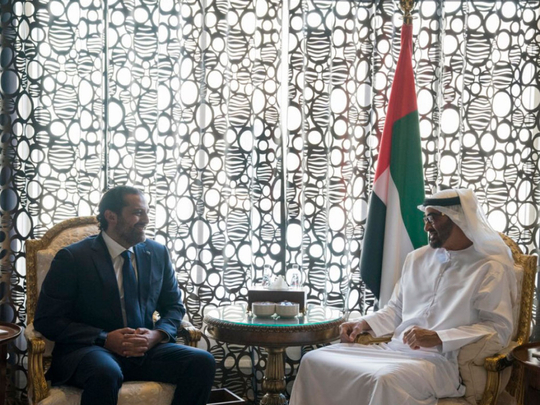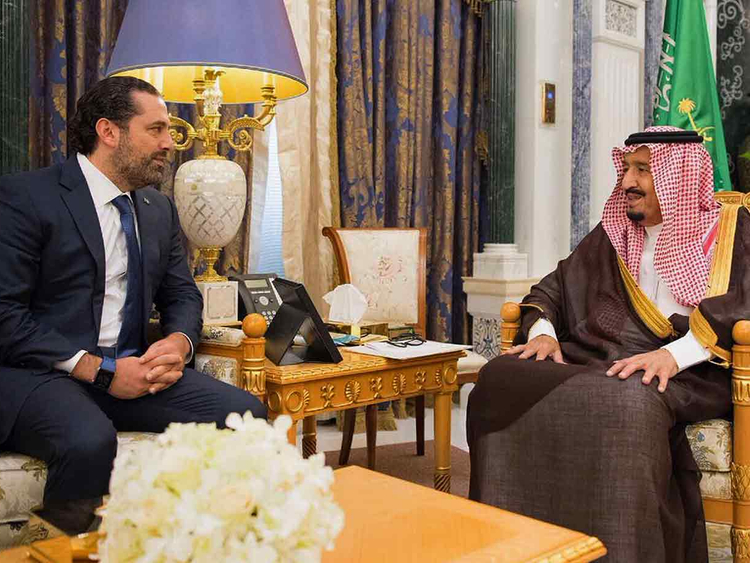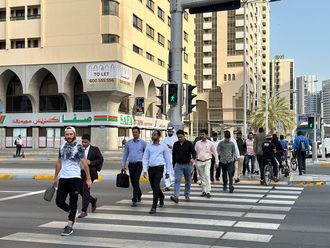
Dubai: The UAE has joined Saudi Arabia and Kuwait in advising its citizens not to travel to Lebanon.
In a statement issued on Thursday, the Ministry of Foreign Affairs and International Cooperation urged the UAE's citizens to completely avoid travelling to Lebanon from the UAE or from any other country.
Saudi Arabia’s foreign ministry has also called on Saudi citizens and residents currently in Lebanon to leave as soon as possible and advised against travelling to the Mediterranean country.
Kuwait issues warning
Kuwait joined Riyadh in issuing alert against Lebanon. Kuwait citizens currently in Lebanon are urged to leave the country immediately, a foreign ministry statement said on Thursday.
The step is taken in view of the present circumstances in Lebanon and is a precautionary measure to prevent any negative fallouts, the statement added. The ministry urged citizens not to travel to Lebanon and has asked Kuwaiti citizens to call 0096171171441 if the needed any help.
Tense atmosphere
A series events in the past week has led to speculation of a fresh war in Lebanon which could possibly see Israeli military action against the Iran-backed Hezbollah group there.
On Saturday, Lebanese prime minister Sa’ad Hariri announced his resignation during a press conference in Riyadh citing fears for his life.
News reports said that Western intelligence agencies had warned Hariri of a plot on his life.
His father, Rafik Hariri, who also served as Lebanese prime minister, was assassinated in 2005 allegedly by the Syrian regime and Hezbollah.
Hariri had become a staunch opponent of Syrian hegemony in Lebanon and it is believed that he was killed for that reason.
His assassination led to mass uprising against Syria—dubbed the Cedar Revolution—which put pressure on Damascus to withdraw its troops and end its decades-long military occupation of Lebanon.
Political turmoil
Since then, Lebanon has been mired in political turmoil as the fragile democracy aims to balance the interests of rival parties—deadlock often lead to long periods of political stagnation.
Lebanon was without a president for over two years until a deal was reached to elect Michel Aoun in 2016—Aoun was seen as a candidate that would be friendly to the Syrian regime and Hezbollah.
The deal also saw the return of Sa’ad Hariri to government which raised the hopes of Lebanese that his presence would help distill Hezbollah’s growing influence on the government.
However, Lebanese politicians have complained that Hezbollah—which commands a huge military presence—continued to flex its muscle to influence Lebanon’s policies.
Saudi foreign minister Adel Al Jubeir in an interview with CNN on Monday echoed these concerns and said Hezbollah’s domination made fair governance impossible in Lebanon.
He also said ‘enough was enough’ for Iran’s continued meddling in the affairs of Arab countries citing its interference in Lebanon, Syria, Iraq and Yemen.
On Saturday, Al Houthis fired a missile on Riyadh which was called an ‘act of war’ by the Saudi government.
Al Jubeir said the missile—which was intercepted before landing—was smuggled into the Hodeida Red Sea port city in Yemen from Iran which came in pieces and was assembled by Al Houthi militants in Yemen with the help of Hezbollah and the Iranian Revolutionary Guard.










